Several countries, from the US to Finland to Albania, are experimenting with phone bans in an effort to create more focused and engaged learning environments.
The War Against Distraction
Carey Gallagher entered her senior year at Yonkers Middle School in New York, along with 1,438 other students. Under the new rules, all students must keep their cell phones in locked magnetic bags.
Gallagher, 16, said she began setting limits on her phone use this past summer. Some students cheered the no-phone policy, but others voiced their disapproval.
In the age of technology, many educators and parents agree that a solution is needed to limit dependence on mobile phones. Dr. Sandy Hattar, a school principal and educator with 20 years of experience, commented: “Our children are easily distracted by their phones. Students are always concerned about what is happening in the bathroom, the next room or the far hallway, instead of focusing on the class and grasping what is happening right in front of them.”
In the US, students in 35 states, including New York, Florida, Texas, California, Massachusetts and Georgia, now face laws or regulations restricting phones and other electronic devices in schools. Under the regulations, each student will receive a bag to store their phone in on the first day of school.
Students can bring their own phone pouches, but they must use the magnetic openers provided by the school to get their devices out. Some students reported long lines waiting to open their pouches. However, Fidelis, a Yonkers student, said the line went smoothly. For her, instead of being glued to her phone during lunchtime like before, this was an opportunity to spend more time chatting and connecting with friends.
According to the Pew Research Center, more than 70% of high school teachers in the US believe that cell phones are one of the main reasons why students lose focus in class. Ms. Leila Pasqualini - a math teacher in Yonkers with 27 years of experience - hopes that the new phone management system will operate effectively and be maintained for a long time. She expressed her wish that her students will know the difference between right and wrong and practice critical thinking. "That is impossible with technology," she frankly said.
Meanwhile, Dr. Sandy Hattar admitted that she initially worried that banning students from using phones would be a big challenge. But now, she believes that removing the devices from the classroom will open up opportunities for students to focus more on their studies, instead of being distracted by invisible distractions from phone screens.
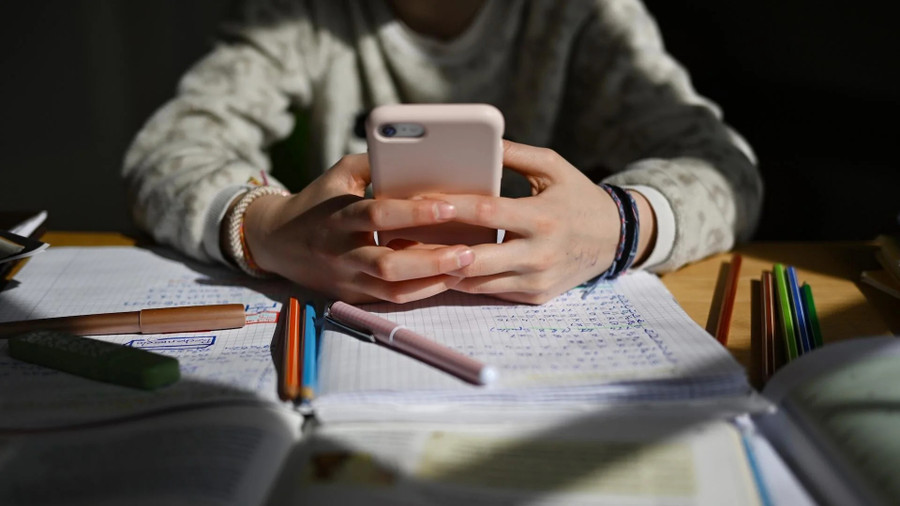
Space for caring
The United States is not the only country adopting this rule. From Finland and France to Brazil, Albania and South Korea, more and more countries are enacting regulations requiring students to limit or eliminate smartphone use in schools.
In Finland, the Parliament has just passed a new law, stipulating that the use of phones during class in both primary and secondary schools is only allowed with the teacher's consent.
The move, lawmakers say, is not simply about reducing screen time, but also about a deeper goal: protecting learning, maintaining focus and caring for students' mental health.
Finnish law does not call for a complete ban on phone use in schools, but instead sets clear boundaries. By law, phones must be kept out of sight during class, unless teachers give permission for educational or personal health reasons.
In cases where the device disrupts learning, teachers have the right to confiscate it. Students’ reactions to this regulation have been mixed. Some agree that phones are indeed distracting, but others believe the law goes too far. For many young people, phones are not just tools, but also a means of communication and connection. Meanwhile, adults are increasingly concerned about the price of that “constant connection”.
In Albania, Minister of Education and Sports Ogerta Manastirliu has stressed the strict enforcement of the ban on mobile phones in schools, and called for cooperation from teachers, parents and students. In a message to the whole society, Ms. Ogerta Manastirliu affirmed: schools must be safe spaces, where students focus on learning and development.
“Schools are where we build our children’s futures, spaces of care, focus and mutual respect. Learning in the classroom should be a priority. For many years, we have had a policy against the use of mobile phones in class.
But this school year, based on international experience and the latest research, we are determined to strengthen implementation to make the regulation truly effective,” Ms. Ogerta Manastirliu emphasized, adding that the decision is not to eliminate technology, but to aim at its proper use.
“Class time is for learning, discussing and collaborating. Studies by the OECD and WHO show that children’s frequent use of mobile phones reduces their ability to concentrate, limits the dynamics in class, and in some cases even increases the risk of bullying,” the Albanian Minister of Education and Sports added.
Under the new regulations, students are not allowed to bring mobile phones to school. In case parents have special and legitimate reasons, the school board can allow it, but the phone must be turned off. Then, students must return it to a designated drawer or box in the classroom, and can only get it back at the end of the school day.
The responsibility for monitoring and implementing this regulation lies with the homeroom teacher and the school board. In an emergency, communication between students and parents can only be conducted through teachers or the school board, to ensure order and seriousness in the school environment.
Teachers are seen as role models in adhering to and spreading this message, while parents play a role in accompanying, reminding and reinforcing their children’s awareness at home. The core message is emphasized: the phone ban is not to create difficulties, but to protect the learning interests, concentration and comprehensive development of the students themselves.

Consistency in execution is required.
While the ban on mobile phones in schools has received widespread support from teachers, there are still concerns. The most important is that there be clear guidance on the consequences of violations to avoid arbitrary handling. Many teachers emphasized the desire to build a transparent, unified and uniform disciplinary framework that is applied uniformly throughout the school.
In addition, regular communication between the school board, students and parents is also considered a key factor to help everyone understand the meaning of the policy. UNESCO also emphasized that building social consensus is the foundation for any education policy to truly come to life.
Particularly in cases where parents have many concerns, open and continuous dialogue will act as a bridge, creating consensus and reinforcing the belief that this is a decision in the best interests of the student.
“It is important that teachers receive strong support from the school board and that there are specific measures to deal with students who violate the policy,” said a middle school teacher in the US. This view was also agreed by a high school teacher: “I want to see clear implementation of disciplinary measures, not only for students but also for teachers to be accountable when violations occur.”
Meanwhile, another high school teacher expressed concern about the effectiveness of the state’s cell phone ban policy, saying that if the school board and district proactively communicated with parents and emphasized the importance of the policy to students, compliance would improve significantly.
Not only stopping at support from the school board, many opinions say that the teaching staff in the school also need to truly agree and accept the consequences of the ban, instead of considering it as just a mandatory task. Because, the lack of consensus among teachers can lead to inconsistent implementation, reducing the effectiveness of the policy.
The above views show that, although most agree that a mobile phone management policy is a step in the right direction, its success depends on consistent implementation and strong support from schools.
The concerns raised by teachers also suggest a roadmap for overcoming potential pitfalls to ensure the policy achieves its intended results. Many stressed that broad support from the teaching staff is a prerequisite.
Without the full consensus of the school management, staff and educational forces in the school, teachers will be forced to "go it alone" in preventing students from using mobile phones.
Many argue that removing cell phones from the classroom can create a more focused, engaged learning environment and lead to higher academic performance. However, that is just the theory. In reality, the success of this policy depends on how it is implemented, communicated, promoted and enforced in each school.
Source: https://giaoducthoidai.vn/lop-hoc-khong-dien-thoai-no-luc-lay-lai-su-tap-trung-post749853.html



![[Photo] Panorama of the 2025 Community Action Awards Final Round](https://vphoto.vietnam.vn/thumb/1200x675/vietnam/resource/IMAGE/2025/11/15/1763206932975_chi-7868-jpg.webp)

![[Photo] General Secretary To Lam receives Vice President of Luxshare-ICT Group (China)](https://vphoto.vietnam.vn/thumb/1200x675/vietnam/resource/IMAGE/2025/11/15/1763211137119_a1-bnd-7809-8939-jpg.webp)
![[Photo] Prime Minister Pham Minh Chinh meets with representatives of outstanding teachers](https://vphoto.vietnam.vn/thumb/1200x675/vietnam/resource/IMAGE/2025/11/15/1763215934276_dsc-0578-jpg.webp)

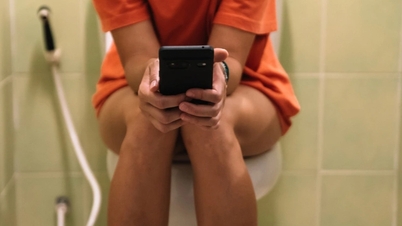






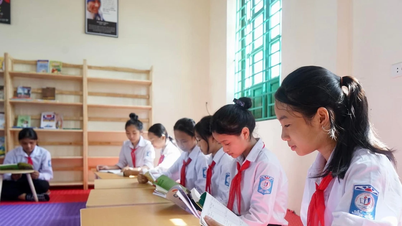
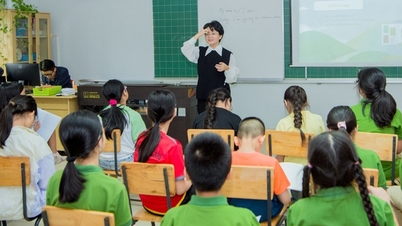

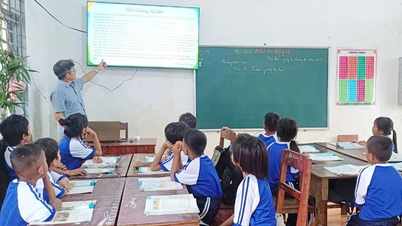










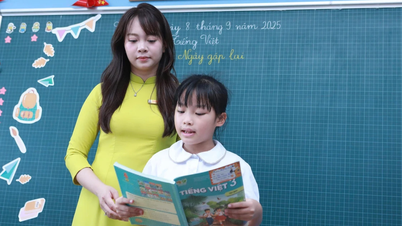

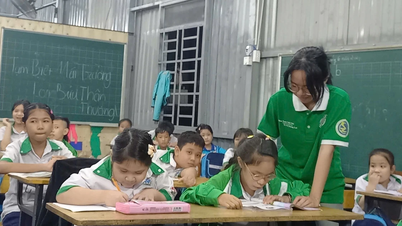


















































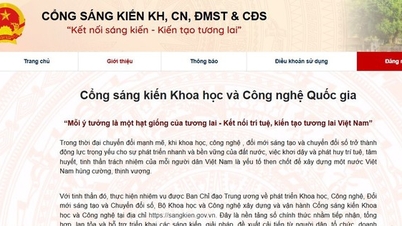




















Comment (0)